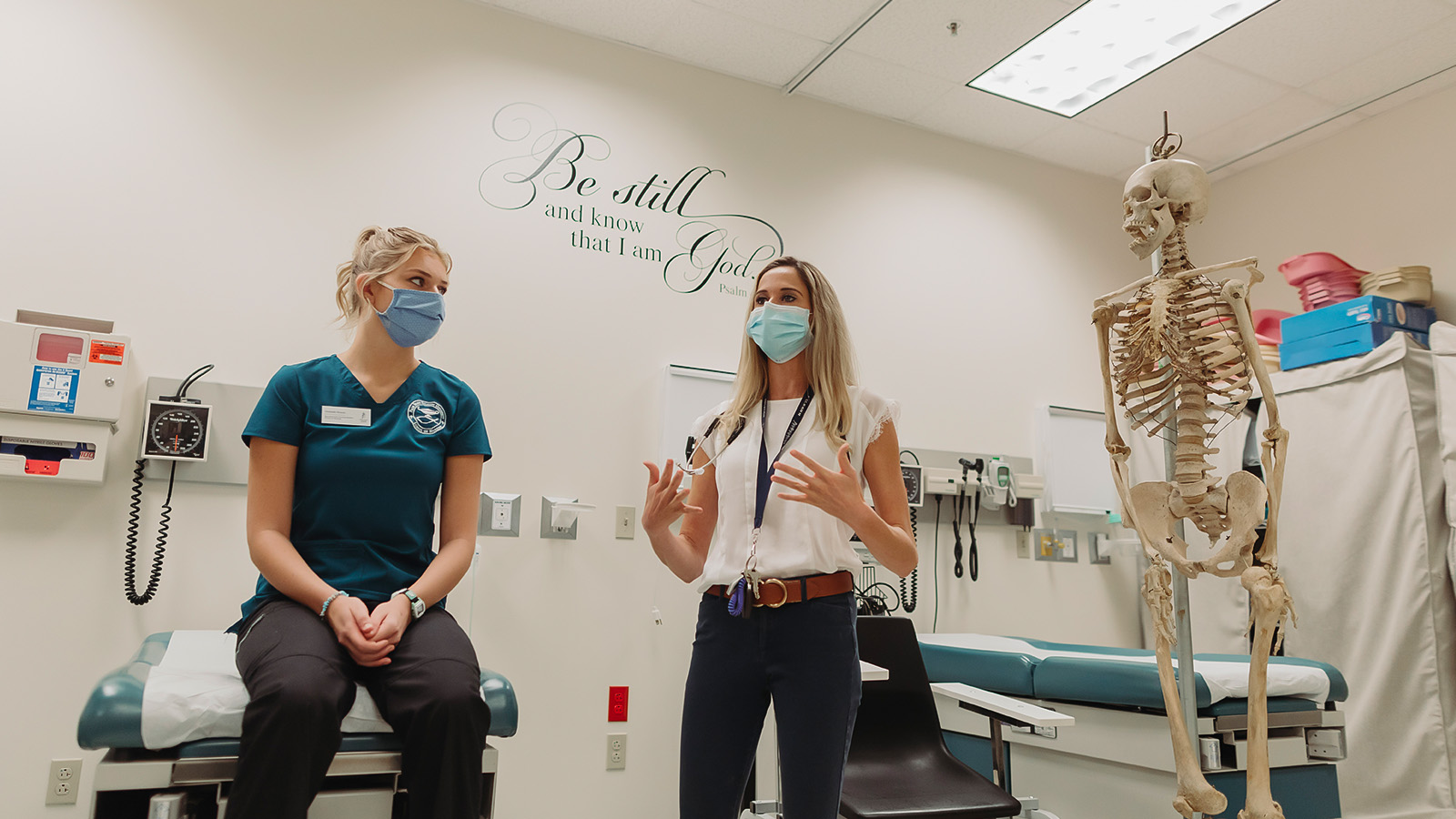5 Reasons Why You Should Get a Master's in Nursing
Nursing is one of the largest sectors of employment and the demand for skilled nurses continues to rise. A career in nursing can offer competitive compensation and meaningful work. While a Bachelor’s degree in Nursing (BSN) is the most common college degree for registered nurses (RNs), there are clear benefits to earning a Master’s degree in Nursing (MSN). Learn more about advanced nursing degrees and the opportunities they can provide.
Reasons to Get a Master’s in Nursing
If you are serious about a career in healthcare, an MSN degree offers several strategic advantages.
1. A Master of Science in Nursing is a Rare Qualification
The most common qualification for nurses is a bachelor’s degree (BSN). 33% of nurses hold an associate degree (ADN), 50% hold a BSN degree, and less than 11% hold a master’s or doctoral degrees in nursing.
Earning an MSN degree puts nurses in a small minority that have invested in additional education and gained qualification for leadership roles.
2. You Can Earn an Master of Science in Nursing Degree Online
PBA’s Online Master of Science in Nursing (MSN) – Health Systems Leadership degree can be completed in a flexible online format. The program is designed to allow students with a BSN degree to progress in their healthcare careers.
Online MSN programs allow busy nurses to learn new skills and grasp deeper principles of the healthcare system. Distance learning is an efficient way to build on your previous academic and professional experience and gain an advanced qualification.
3. Leadership Skills are Always in Demand
Leadership is a key focus of many MSN degree programs. Nurses who complete advanced degrees will often be given high levels of responsibility. Learning how to lead with grace and humility will make you an asset to any organization.
4. Qualified Nurses are in Demand
Professions across the healthcare industry are set to experience increased demand due to an aging population. Employment of registered nurses is projected to grow by 6% over the next decade. With stable growth anticipated and a median annual salary of $86,070, nursing provides a clear path to professional success.
5. Higher Earning Potential
Nurses with an MSN degree have the potential to earn a higher salary than those with a BSN. Additionally, healthcare management positions, with a current median annual salary of $110,680, are also projected to grow by 28%, adding thousands of high-paying roles to the job market.
Career Outlook with a Master’s in Nursing
The career outlook for nurses with advanced degrees is even brighter. Over half of the nursing workforce is over 50, and over one million nurses are expected to retire within the next ten to fifteen years. Many of the nurses nearing retirement hold senior and leadership positions, so there is a strong need for new leadership in nursing.
The demand for advanced practice registered nurses (APRNs) is set to increase by 38% over the coming decade. The high demand for skilled nurses with advanced degrees is reflected in a median salary of $129,480 for APRNs..
Nurses who complete an MSN degree will be well positioned to take advantage of large-scale demographic trends and earn competitive salaries while filling critical roles in the healthcare system.
Careers With a Master’s in Nursing Degree
Common roles for graduates of MSN degree programs include:
- Nurse Educator
- Nursing Director
- Nursing Manager
- Registered Nurse (RN)
- Chief Nursing Officer (CNO)
What Will I Learn in a Master of Science in Nursing Degree?
Most MSN degree programs are designed for students who have either completed a BSN degree or hold an RN license. The prerequisites for MSN degrees enable the curricula to focus on more advanced topics in nursing and healthcare.
Here are some classes you might take in an MSN degree like PBA’s Health Systems Leadership MSN:
- Scientific and Philosophical Foundations of Nursing Practice
- Advanced Nursing Research
- Healthcare Policy and Advocacy
- Leadership in Organizations and Systems
- Healthcare Technology and Quality Improvement
- Advanced Nursing Practicum
- Healthcare Economics and Finance
- Global Perspectives of Healthcare
- Advanced Pathophysiology
- Advanced Pharmacology
- Advanced Health Assessment & Diagnostic Reasoning
- Fundamentals of Healthcare Administration
- Independent Practice Management
- Legal and Ethical Aspects in Healthcare
- Caring for the Vulnerable Population
How to Get a Master’s in Nursing
There are several different paths to an MSN degree. Some MSN programs are designed for graduates of BSN degrees (BSN to MSN track) while other programs offer RN to MSN options.
Nursing students can take advantage of the Nursing Centralized Application System that allows them to complete one application and submit to over 250 nursing programs.
Once accepted to a program, nurses will need to complete the enrollment process and register for classes. Most programs will have an admissions team that will help students at each step of the process.
Learn More About PBA’s Master of Science in Nursing Program
PBA’s Online Master of Science in Nursing can help you reach your career goals. Learn more about our program and start your application today.
